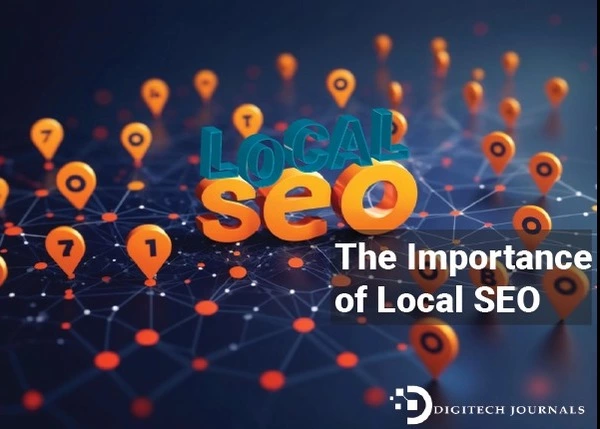Search engine optimization, also known as SEO, is constantly evolving as search engines like Google make updates to their algorithms. SEO experts are always working to understand new changes and help websites rank higher in search results. What lies ahead in the future for SEO? This article will explore some key trends that could shape how SEO works in the coming years.
Artificial intelligence and machine learning are advancing very quickly and will likely play a bigger role in determining search rankings. As search engines get smarter, they may be able to better understand topics, keywords in context, and user intent behind queries. This could open up new opportunities for SEO but may also require adapting strategies. Voice search is growing, and conversations with virtual assistants will become more common. SEO practices may need to start considering how websites can be optimized for voice and non-text-based queries.
Personalization is another big trend; search engines will aim to provide more tailored, individual results. This may mean location-based SEO becomes even more important to target users within a certain area. User data and profiles will also help search engines customize results, so understanding an audience at a deeper level could give websites an SEO advantage. Overall, the future of SEO looks very exciting as new technologies emerge but will require SEO professionals to keep learning and adapting to stay ahead of the curve. The field is sure to keep evolving in fascinating ways.
The Impact of AI on SEO
Artificial intelligence (AI) is expected to have a significant impact on the future of SEO. As AI capabilities continue advancing, search engines will rely more on machine learning algorithms rather than human-written rules alone. This means search engines may gain a deeper understanding of user intent and be able to provide more relevant, personalized results.

For businesses, AI will influence the way they approach SEO. Search engines will better comprehend topics in context rather than just keywords. Content must be optimized to demonstrate true expertise in a subject area rather than keyword-stuffing. Rich, well-researched content will be key to ranking well. AI assistants may also respond to user questions, so content should be optimized to be found by and understandable to both humans and machines.
The rise of AI also means more data about user behavior will be collected. Search engines will gain deeper insights into what users are really looking for versus what they type into the search box. Businesses need to closely analyze user data to truly understand their target audience and how to best help them find relevant information and products. With AI, search engines can personalize results better than ever before based on location, past searches, interests and more. This makes data analysis and audience understanding increasingly important for SEO strategies.
By keeping up with the latest AI advances, SEO professionals can help businesses harness new technologies to their advantage. Those who adapt quickly to changes will be well-positioned for SEO success in our AI-powered future.
The Importance of User Experience
User experience (UX) is becoming increasingly important for SEO. As search engines evolve to better understand user intent and satisfaction, how a website feels and functions for visitors will impact its ability to rank well organically. Google has stated that UX metrics like bounce rate, time on site, and back button usage may influence search rankings in the future of SEO.

A positive UX starts with easy navigation that allows users to quickly find what they need. Websites must be optimized for mobile as more searches now occur on smartphones and tablets. Pages should load fast to avoid high bounce rates, especially on mobile networks which can be slower. It’s also important to understand different user goals – is someone actively researching a topic or just browsing? Designing pages with the goal in mind improves the experience.
Testing UX is essential. Businesses should conduct usability testing to identify any issues or frustrations users face. Analytics tools can also provide insights into drop-off points or tasks that are confusing. Addressing common problems uncovered through testing ensures a smooth experience across all devices.
Providing valuable, engaging content is another key part of UX. Users want to easily consume helpful information and may leave if pages feel like ads. Quality content keeps people on-site longer and encourages sharing or linking out, both of which help SEO. With a focus on UX, businesses can optimize websites to better satisfy users and search engines alike.
The Rise of Voice Search
Voice search is becoming increasingly popular as more users adopt voice-controlled smart speakers and devices. By 2023, 50% of all searches are projected to be voice searches. For SEO, this rise of voice means optimizing websites for a non-text-based form of searching.

When someone performs a voice search, the spoken words are converted to text using speech recognition technology. The search engine then processes the text query as normal. However, with voice there are additional factors to consider. Queries tend to be longer, more conversational, and may include questions or commands in addition to traditional informational searches.
To optimize for voice, businesses should focus on natural language and conversational content. Pages should sound natural when read aloud versus using dense text. It’s important to anticipate common questions or requests related to products/services and include relevant answers directly on site. Internal linking can help direct users to the best pages to answer their queries.
Other optimizations include keeping paragraphs short and breaking up content with subheadings. Images and videos can help explain concepts in an auditory-friendly way. Site maps should be set up intuitively with voice navigation in mind.
Testing website content through actual voice queries on devices can help identify any issues. With some adjustments, businesses can ensure their most important pages are found through voice. Adapting to this emerging search format helps future-proof a website for all users.
The Role of Content in SEO
While search engines are becoming more advanced with AI and personalization, high-quality content remains the most important factor for organic search success. Google has long stated that websites should focus on creating useful, information-rich content for their users rather than tricks or shortcuts. This will remain true as SEO strategies evolve.
To optimize content for search, businesses first need a solid content marketing strategy and publishing schedule. They should identify target keywords and topics that are relevant to their industry and audience. Researching popular and emerging search queries helps determine what content is needed.
Each piece published must answer the user’s need for that query directly and comprehensively. Content should not be written for search engines but actually solve users’ problems or questions. Using the optimal keywords naturally rather than stuffing is important for a positive user experience.
Other best practices include regularly updating older pages and creating cross-linked “hub” pages to expand content coverage of broader topics over time. Multimedia content like videos or infographics can perform very well in search if optimized with transcripts and alt text.
Promoting high-quality content through social sharing, backlinks and internal linking helps boost organic traffic. Analyzing performance with Google Search Console provides insights into how to improve underperforming pages. With a strategic approach, businesses can develop an SEO content marketing program that delivers value for both searchers and the bottom line.
The Impact of Social Media on SEO
Social media has become an integral part of the digital marketing landscape and also influences SEO significantly. Major search engines like Google actively monitor a website’s social media engagement and use these signals to determine its credibility and popularity.

Shares, likes and comments on quality posts from authoritative social profiles help boost domain authority over time. This tells search engines that the content is valuable to other users. Businesses should establish a presence on relevant social networks and cross-promote new pages or updates. Consistent, engaging posting builds followers, who then spread content organically.
Links shared from social profiles pass some link juice to the referenced pages, acting as natural backlinks. Monitoring for and responding to brand mentions also seeds inbound links that search engines can discover over time. Social proof from these activities supports better rankings.
Businesses must post content optimized for sharing on each platform. Using hashtags, tagging pages, and including images or videos improves performance. Analyzing insights reveals the most effective posting cadences, formats and topics as well.
Interacting with customers and industry influencers on social media creates goodwill while strengthening SEO. An optimized social media strategy integrated with content marketing helps websites gain a following and elevates their search visibility.
The Importance of Local SEO
Local SEO is incredibly important for businesses that operate within a specific geographic region like a city, town or neighborhood. According to Google, over half of all searches now have local intent behind them as users search for nearby businesses and services. Prioritizing local SEO helps these companies attract valuable customers within their target area.

Businesses should also focus on gaining local citations to strengthen their presence in search results. Citations are mentions of the company across various third-party sources like directories, review sites, industry listings and local business databases.
The more often a company is cited with accurate information like address, phone number and services, the more credible it appears to search engines. Regularly claiming and updating profiles on sites like Foursquare, Yelp, TripAdvisor and Google’s Citations program helps sync this information across platforms over time.
It’s a good idea to track local citations through tools like BrightLocal and search for missing or outdated listings to request updates. Maintaining a consistent business presence across local citations reinforces authenticity directly within the communities businesses want to target.
This extra visibility from citations supports higher local search rankings and discoverability on maps.
To optimize locally, businesses must first claim and verify their Google My Business and Apple Maps listings. They should provide accurate business information like address, phone number and hours. Adding high-quality photos, service areas and categories helps potential customers easily discover the company.
Local SEO also involves optimizing the website for location-based keywords. Internal pages should include the business’s city, state and targeted neighborhoods when relevant. Google Maps embeds and directions make it easy for local users to visit.
Businesses can further boost local visibility by soliciting reviews on listing profiles. Outreach to local organizations, media and influencers can generate backlinks mentioning the location. Analyzing metrics like local citations, proximity to competitors and local search traffic provides insights.
With local SEO, companies can reach customers actively searching for products and services near them. It increases the chances of gaining new clients in the local community.
In the Final Analysis:
In conclusion, SEO is constantly evolving as search engines incorporate new technologies and aim to better understand user intent. The trends discussed, like artificial intelligence, personalization, voice search, and an enhanced focus on user experience and quality content will all significantly impact SEO strategies in the coming years. Businesses must adapt by analyzing user data, optimizing for different devices and formats, and developing high-value content tailored to their target audiences. Local SEO tactics also remain important for businesses wanting to attract customers within a specific geographic region.
By keeping abreast of emerging changes and adapting practices accordingly, SEO professionals can help their clients harness new opportunities and thrive in the continuously evolving search landscape of the future of SEO. those who closely follow emerging trends and meet shifting user needs have the best chance of success in the future of SEO.



